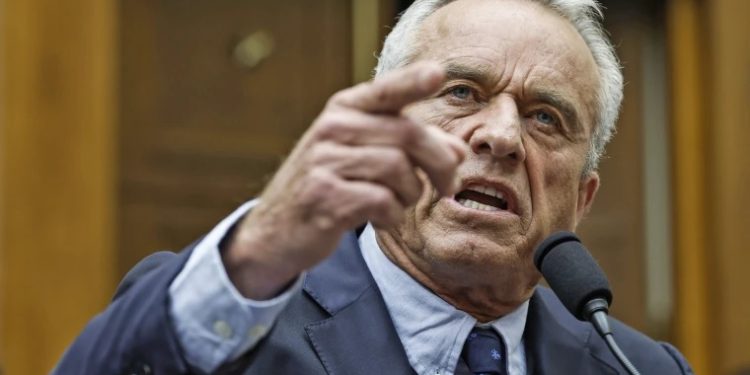On December 11, the U.S. Supreme Court declined Robert F. Kennedy Jr.’s request to intervene in a significant case under consideration, with one justice offering a dissent. Mr. Kennedy, running for president as an independent after initially starting his campaign as a Democrat, sought to intervene in the case of Missouri v. Biden, which the Supreme Court agreed to hear in October. The case, brought by several state attorneys general, focuses on government pressure applied to social media companies before and during the COVID-19 pandemic, urging them to censor individual users.
Government officials’ repeated encouragement of censorship, as revealed in emails and discovery materials, was deemed by a U.S. district judge and a federal appeals court as evidence of speech suppression. The government appealed the case to the Supreme Court. Mr. Kennedy had brought a similar case, consolidated at the district court level with the Missouri lawsuit. However, when a preliminary injunction was issued in the Missouri case, the courts refrained from ruling on Mr. Kennedy’s motion for an injunction.
In October, Mr. Kennedy’s lawyers filed a motion to intervene, arguing that without Supreme Court action, the plaintiffs were left “stranded” in the district court. The motion highlighted Mr. Kennedy’s status as a presidential candidate targeted by the federal government, facing online speech restrictions to this day. Despite this argument, most justices rejected the motion without providing detailed reasoning.
Justice Samuel Alito, appointed by George W. Bush, dissented, stating that while intervention is uncommon, he would grant Mr. Kennedy’s motion. Justice Alito emphasized Mr. Kennedy’s status as an alleged victim of a “coordinated campaign” between the government and big tech to censor, coupled with his role as a presidential candidate.
He expressed concern that denying intervention could delay the resolution of Mr. Kennedy’s claims until 2024, potentially affecting the presidential campaign. Notably, government officials argued that the case’s plaintiffs lacked standing, but Justice Alito pointed out that Mr. Kennedy had a strong claim to standing, and the government hadn’t contested this point. The rejection of the motion, according to Justice Alito, could leave Mr. Kennedy awaiting resolution until the district court separately evaluates his claims.
 Telegram is where we really talk. Don't miss out!
Telegram is where we really talk. Don't miss out!







